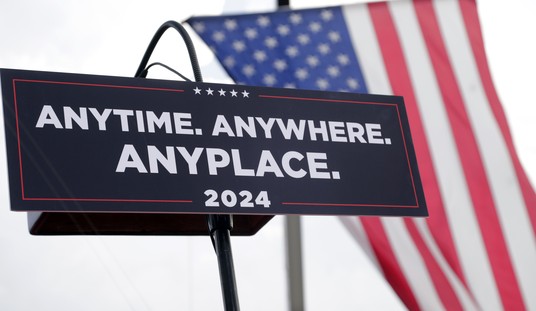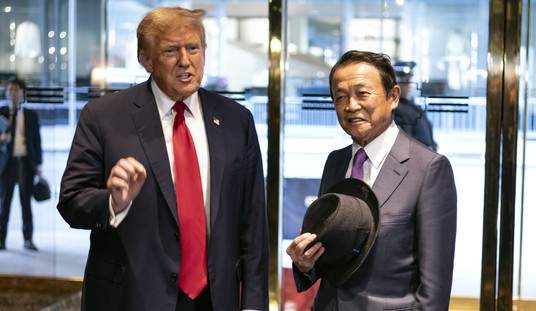Now that the choice has been made, we can expect the divisions that erupted on the Right over the preferred Supreme Court nominee to largely fade. Brett Kavanaugh checks all the boxes, even while the other contenders largely did as well. The tussle over the relative merits and demerits of the other runners-up at times became an unseemly exercise in schism over minimal differences in both ideology and practice.
Both Allahpundit and Jazz noted the unsurprising and ultimately safe nature of Donald Trump’s choice of replacement for Anthony Kennedy. Glenn Reynolds made the same argument last night at USA Today:
Some conservatives would have preferred someone farther to the right, but realistically Kavanaugh fits Trump’s stated requirements for the court, and Kavanaugh is probably a safe pick, unlikely to pose any surprise problems in the confirmation process. As Republican lawyer/author Kurt Schlichter put it, “We couldn’t lose. And with Kavanagh, we haven’t.”
That’s probably right. Kavanaugh will be a solid vote for constitutional fidelity and judicial restraint. Some firebrands might have preferred more of a . . . well, firebrand, but with midterm elections coming and a narrow majority, Trump wanted a solid pick, a Harvard/Yale guy who’s likely to sail through the confirmation process. And that’s what he got. Plus, on the D.C. Circuit, Kavanaugh has a strong record in support of the Second Amendment.
True, and some populists wanted more of a populist, while some religious-liberty activists wanted a fight over faith. Those are two wings of the Right that Trump has usually courted assiduously (as well as being a member of the “firebrand” demo), which is why the unsurprising choice of longtime conservative favorite Kavanaugh does seem a little surprising. However, the real curious quality of this choice is its conventionality, as I argue in my column at The Week:
What is a little surprising, however, is that Trump chose a candidate who identifies strongly with the establishment Trump campaigned against two years ago. As a jurist, Kavanaugh has long been seen as a conservative’s conservative, but he’s worked as long in the political sphere as in the judiciary. As The Associated Press pointed out, “Kavanaugh was even born inside the Beltway and has lived there virtually his entire life.” After clerking for Kennedy at the Supreme Court, Kavanaugh went to work on Ken Starr’s independent counsel probe of former President Bill Clinton and Whitewater, which resulted in Clinton’s impeachment. He joined George W. Bush’s campaign and worked on the legal challenges surrounding the 2000 election, then served five years in the Bush White House before moving to the D.C. Circuit in 2006.
One would think Trump would have balked at Kavanaugh’s closeness to the political and legal establishment. Tapping Barrett, on the other hand, would have given him an opportunity to fire up his political base and to dare opponents to stop her. Raymond Kethledge, another name on the list, has a decade on the 6th Circuit, and hails from Michigan, a state Trump will need to hold in 2020. Pennsylvania native Thomas Hardiman, a runner-up to Gorsuch in 2017 as well as to Kavanaugh now, has served 11 years on the 3rd Circuit in another critical state for Trump’s political hopes.
So why go the conventional route? This might be a long-term strategy meant to shore up his 2020 re-election bid and head off any significant primary challenges. The next term in office may well present even more opportunities for Supreme Court appointments, and Trump may want to impress on conservatives his reliability and predictability on this key issue:
Having won the political world by attacking the old order, perhaps Trump is now looking ahead to a tough 2020 fight and knows he needs to bridge the establishment and the populists together. The Supreme Court list arguably won Trump one election by giving conservatives and establishment figures a reason to vote for him, and this choice underscores Trump’s value to them for another term. When it comes time to vote in an other presidential election, Trump’s appointments to the judiciary will certainly position him as the safe choice for everyone to the right of the Democrats. That might make Kavanaugh’s nomination the most conventional act Trump will make as president.
None of this is to argue that Kavanaugh is a poor choice, or not even to argue that he wasn’t the best choice. Any rational analysis of the four finalists would have acknowledged that all of them were solid choices in the judicial sense, but with differing approaches when it comes to strategizing for confirmation. We should be delighted with this choice and call for unity in support of it from Senate Republicans. But Kavanaugh is a significantly more conventional and establishment choice than even Neil Gorsuch, and it’s at least arguable that the change of direction was deliberate.








Join the conversation as a VIP Member